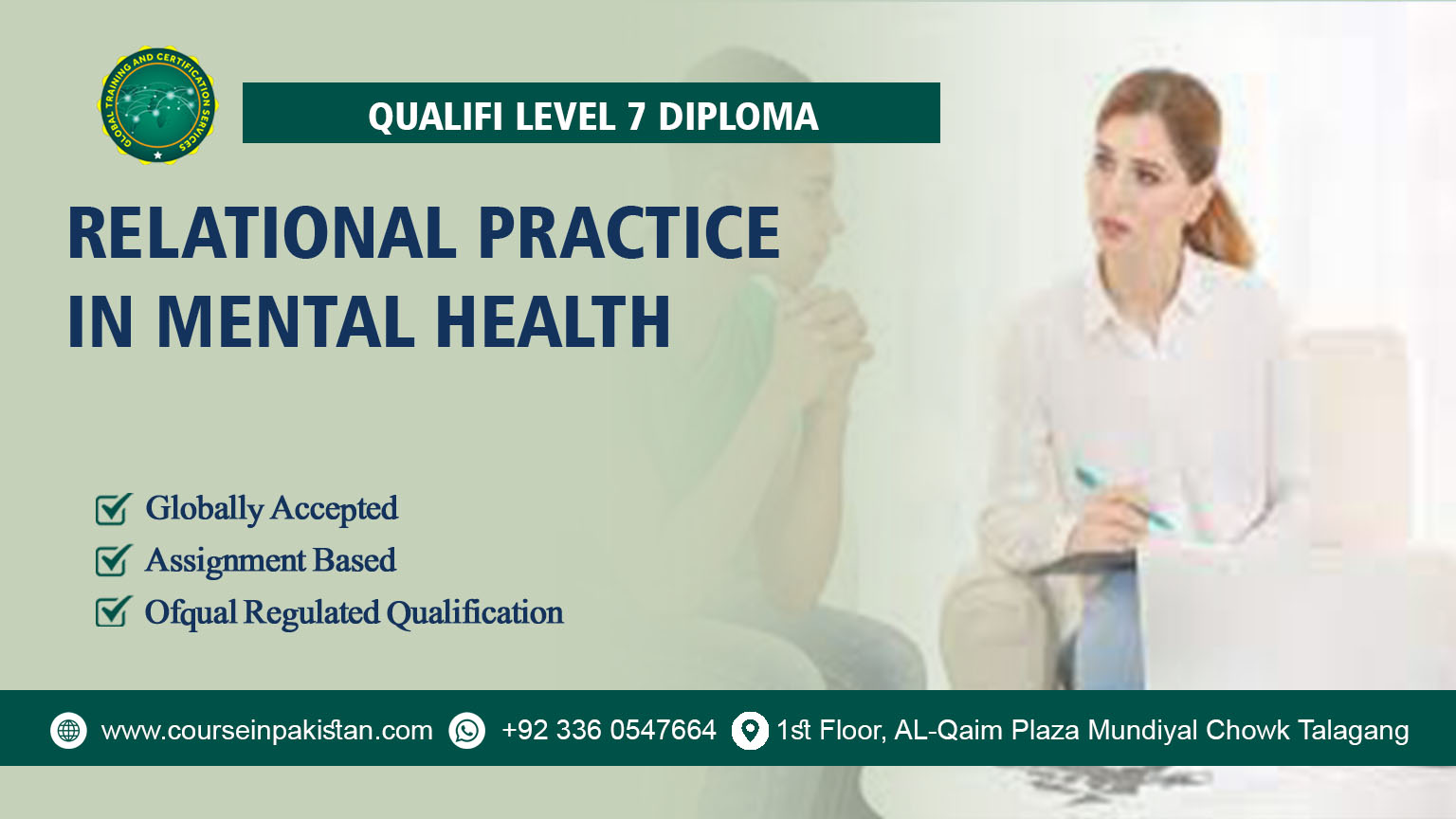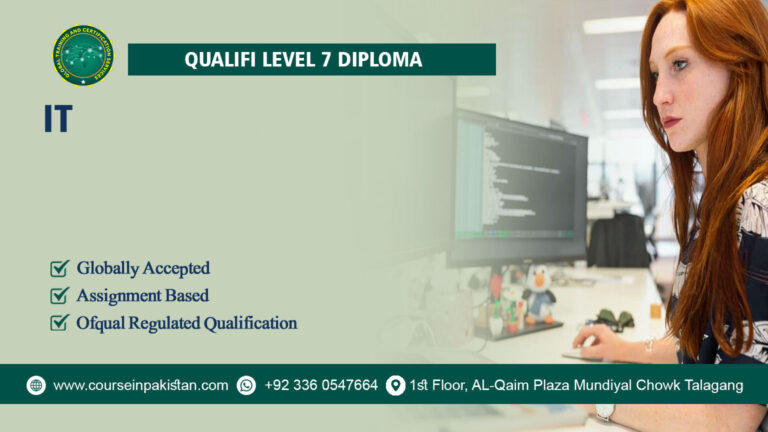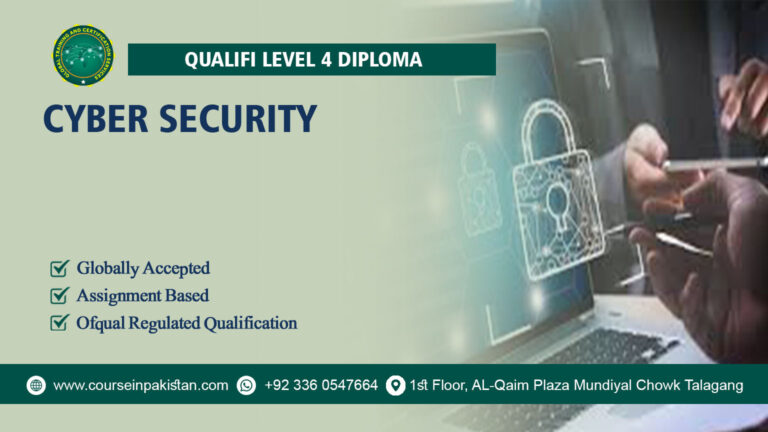
Qualifi Level 7 Diploma in Relational Practice in Mental Health
In the realm of mental health care, the Qualifi Level 7 Diploma in Relational Practice represents a significant milestone for professionals aiming to deepen their understanding and expertise in therapeutic relationships. This advanced diploma is tailored for practitioners who aspire to excel in the complex and rewarding field of mental health through relational approaches.
The Qualifi Level 7 Diploma in Relational Practice in Mental Health is designed to equip experienced practitioners with advanced skills and knowledge necessary for effective therapeutic interventions. Grounded in relational theories and practices, this diploma emphasizes the importance of building meaningful connections with individuals to support their mental health and well-being.
This diploma offers a comprehensive exploration of relational theories, therapeutic techniques, and ethical considerations specific to mental health care. Participants delve into advanced topics such as psychodynamic approaches, interpersonal dynamics, trauma-informed care, and therapeutic boundaries. The curriculum combines theoretical learning with practical applications to enhance clinical effectiveness and client outcomes.
Course Benefits
- Enhanced Therapeutic Skills: Develop advanced relational and therapeutic skills to build effective client-therapist relationships.
- Specialized Knowledge: Gain in-depth understanding of relational theories and their application in mental health practice.
- Personal and Professional Growth: Reflect on and refine your own relational style to improve client engagement and treatment outcomes.
- Ethical Practice: Navigate complex ethical dilemmas inherent in mental health care and maintain professional boundaries.
- Career Advancement: Position yourself as a leader in mental health care, capable of guiding and supervising junior practitioners.
Course Study Units
The Qualifi Level 7 Diploma in Relational Practice in Mental Health typically includes advanced study units such as:
- Neurobiology, Psychodynamic Theory and Practice
Trauma-informed Approach in Mental Health
Presenting Issues and Diagnoses in Mental Health
Enabling Recovery in Mental Health
Social Dynamics in Mental Health
Professional Skills in Mental Health
Learning Outcomes
Upon completion of the diploma, participants can expect to achieve the following learning outcomes:
-
1. Neurobiology, Psychodynamic Theory and Practice
Learning Outcomes:
- Neurobiological Understanding: Demonstrate an advanced understanding of neurobiology and its relevance to mental health conditions and treatment.
- Psychodynamic Theory Application: Apply psychodynamic principles and theories to understand the unconscious processes influencing behavior and mental health symptoms.
- Therapeutic Integration: Integrate neurobiological and psychodynamic perspectives to enhance therapeutic interventions and client outcomes.
- Critical Analysis: Critically evaluate neuroscientific research and psychodynamic literature to inform clinical practice and decision-making.
2. Trauma-informed Approach in Mental Health
Learning Outcomes:
- Comprehensive Understanding: Develop a comprehensive understanding of trauma and its impact on individuals’ mental health and well-being.
- Trauma-informed Practice: Implement trauma-informed approaches in assessment, treatment planning, and therapeutic interventions.
- Empowerment and Safety: Foster a therapeutic environment that promotes empowerment, safety, and healing for trauma survivors.
- Professional Boundaries: Navigate ethical considerations and maintain professional boundaries in trauma-informed practice.
3. Presenting Issues and Diagnoses in Mental Health
Learning Outcomes:
- Diagnostic Competence: Demonstrate competence in assessing and diagnosing a range of mental health conditions based on DSM-5 or ICD-11 criteria.
- Holistic Assessment: Conduct comprehensive assessments considering biological, psychological, social, and cultural factors influencing mental health.
- Treatment Planning: Develop tailored treatment plans that address presenting issues and co-occurring conditions while promoting recovery and well-being.
- Client Engagement: Engage effectively with clients and families in discussions regarding diagnosis, prognosis, and treatment options.
4. Enabling Recovery in Mental Health
Learning Outcomes:
- Recovery-oriented Care: Implement recovery-oriented approaches that promote autonomy, hope, and empowerment in mental health practice.
- Strengths-based Assessment: Identify and leverage clients’ strengths and resources to support their recovery journey.
- Collaborative Goal-setting: Facilitate collaborative goal-setting with clients to promote personal growth, resilience, and meaningful life roles.
- Outcome Evaluation: Evaluate progress towards recovery goals and adjust interventions to optimize client outcomes and satisfaction.
5. Social Dynamics in Mental Health
Learning Outcomes:
- Social Determinants Awareness: Analyze the impact of social determinants such as socioeconomic status, culture, and stigma on mental health outcomes.
- Social Interventions: Develop and implement social interventions that address social isolation, discrimination, and barriers to community integration.
- Family and Community Support: Collaborate with families, caregivers, and community resources to enhance social support networks for individuals with mental health challenges.
- Advocacy and Policy: Advocate for social policies and initiatives that promote mental health equity, social justice, and inclusion.
6. Professional Skills in Mental Health
Learning Outcomes:
- Communication Excellence: Demonstrate advanced communication skills essential for effective client engagement, collaboration, and interprofessional teamwork.
- Ethical Practice: Navigate complex ethical dilemmas and maintain professional boundaries in diverse mental health settings.
- Cultural Competence: Apply culturally competent practices to provide inclusive and responsive care to clients from diverse backgrounds.
- Continuous Development: Engage in reflective practice, supervision, and ongoing professional development to enhance clinical skills and knowledge.
These learning outcomes underscore the advanced competencies and specialized knowledge that graduates of the Qualifi Level 7 Diploma in Relational Practice in Mental Health will acquire. This diploma prepares professionals to excel in providing holistic, compassionate, and effective care to individuals experiencing mental health challenges, while also advancing their careers in various roles within mental health services.
Who is This Course For?
The Qualifi Level 7 Diploma in Relational Practice in Mental Health is ideal for:
- Experienced Mental Health Practitioners: Psychologists, counselors, psychotherapists, and psychiatric nurses seeking advanced training in relational approaches.
- Clinical Supervisors: Professionals responsible for supervising and guiding junior practitioners in mental health settings.
- Healthcare Managers: Leaders in mental health organizations aiming to enhance clinical practice and service delivery.
- Aspiring Researchers: Individuals interested in conducting research on relational dynamics and therapeutic outcomes in mental health.
Future Progression
Graduates of the Qualifi Level 7 Diploma in Relational Practice in Mental Health have various pathways for career advancement and professional growth:
- Doctoral Studies: Pursue a Ph.D. in Clinical Psychology, Counseling Psychology, or related fields to deepen research expertise.
- Clinical Leadership: Assume leadership roles such as Clinical Director, Service Manager, or Head of Clinical Services in mental health organizations.
- Consultancy and Training: Offer specialized consultancy services or provide training on relational practice and therapeutic approaches.
- Academic Roles: Teach and supervise students in mental health programs at universities or training institutes.
The Qualifi Level 7 Diploma in Relational Practice in Mental Health is a prestigious qualification that empowers mental health practitioners with advanced relational skills, theoretical knowledge, and ethical understanding necessary for effective clinical practice. Whether you aspire to excel in direct client care, supervision, leadership, or research, this diploma equips you with the expertise to make a profound impact in the lives of individuals experiencing mental health challenges. Embrace the opportunity to advance your career and contribute meaningfully to the field of mental health through relational excellence and therapeutic innovation.






